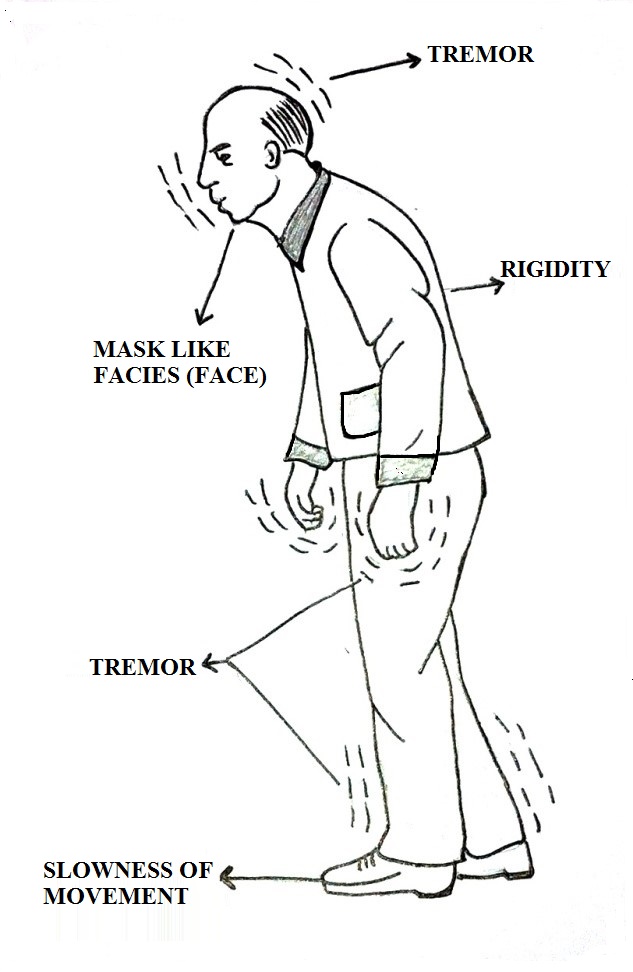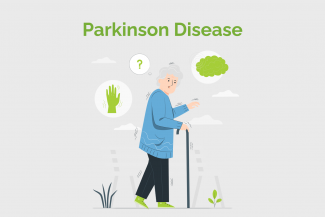Parkinson’s disease is a progressive neurological disorder caused by malfunction and death of nerve cells (neurons) in the brain. Because of the death of nerve cells, people with Parkinson’s don’t have enough of the chemical Dopamine. This causes their movements to slow down. Symptoms get worse over time.
An estimated 7 to 10 million people worldwide are living with Parkinson’s Disease. These numbers are projected to escalate sharply as more people live longer.

Symptoms vary from person to person. Four main movement related symptoms are:
- Tremors: Shaking or back and forth movements of hands and legs. Can affect jaws and head in severe condition. Occurs only during rest.
- Postural Instability: Difficulty balancing in sitting or standing position. Increased risk of falling.
- Bradykinesia: Slowness of movement, speech difficulty, slowness and difficulty in doing simple tasks like buttoning shirt, brushing teeth.
- Muscular Rigidity: Stiffness of muscles in arms, legs, trunk and neck causes discomfort and resistance in moving.
Other movement related symptoms include:
- Very rapid movements as inability to slow down
- Difficulty chewing and swallowing
- Gradual shrinking of handwriting
- Mask-like face due to stiffness of facial muscles
- Speech difficulty - stammer and soft voice
Non-movement symptoms:
- Mood changes like depression, anxiety, irritability
- Constipation and difficulty in urination
- Freezing – Cannot move for several seconds
- Dizziness and faintness due to sudden drop in blood pressure when standing up from a lying down position
- Sexual problems - men may have difficulty in erection
- Loss of smell
- Sleep disturbances

Changed
04/Nov/2017
Condition













